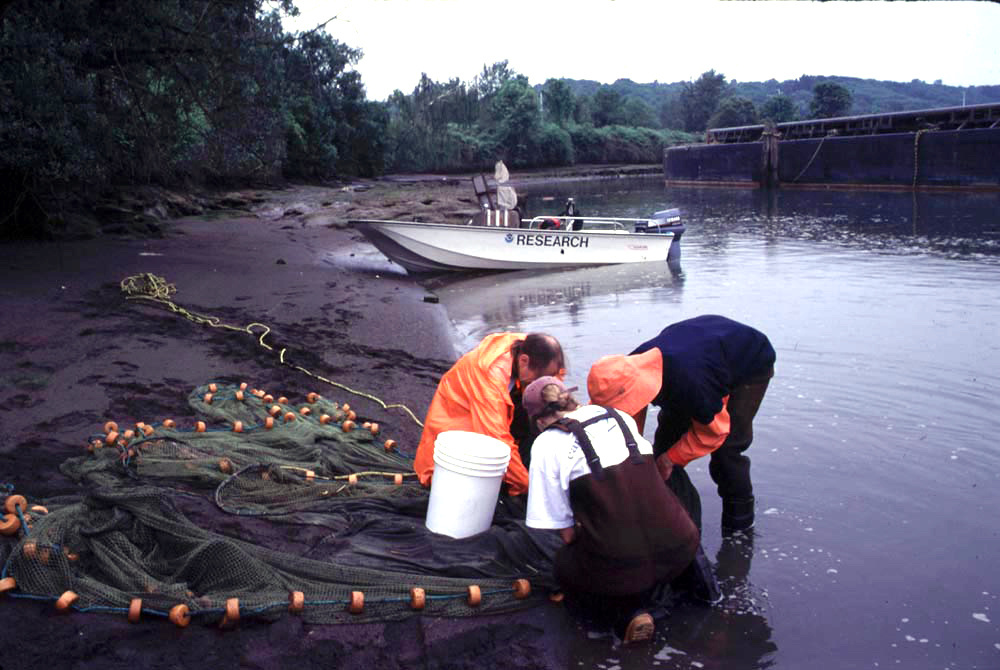Our Location
The Newport Research Station is located at Oregon State University’s Hatfield
Marine Science Center in Newport, OR.
What We Do
The Northwest Fisheries Science Center’s Newport Research Station conducts critical research on groundfish, salmon, and the ecosystems in which they live. Newport scientists have diverse backgrounds and areas of expertise but share a common goal—to provide state-of-the-art scientific information on living marine resources to support management decisions.
Our Facilities
The Newport Research Station is the Center’s only ocean-port research facility and is uniquely located in the midst of Oregon’s groundfish and salmon industries. It is also adjacent to the NOAA Marine Center Pacific and the OSU Ship Operations Homeport. While based in Newport, the station’s some 50 scientists and staff conduct research throughout the West Coast.
Our Research
Groundfish Research
The West Coast groundfish fishery includes some 80 commercially fished stocks off the Washington, Oregon, and California coasts and supports millions of dollars in economic activity and many livelihoods.

Cooperative Research Surveys
The Center conducts groundfish surveys, often in cooperation with the commercial fishing industry, that target important species using acoustic technologies, fixed gear, and midwater and bottom trawls.
Observer Program

Ecosystem and Habitat Surveys
Newport scientists conduct ecosystem and habitat surveys, using a variety of tools, to help determine how natural fluctuations in marine ecosystems affect fishery productivity, support the Newport Hydrographic Line time series, and study the complex interactions between fish and their habitats.
Stock Assessments
Center scientists integrate information from observers, groundfish surveys, aging studies, and fishermen into mathematical models and draw conclusions from the results that are then used by managers to identify overfished and threatened stocks and set biologically sustainable harvest levels.
Salmon Research
Newport scientists conduct research to help understand the biology and ecology of threatened and endangered salmon and steelhead populations in the Pacific Northwest.
Fish Health
Newport scientists study the characteristics and impact of contaminants and disease on salmon health.
Estuarine and Ocean Ecology
Newport scientists conduct research to better understand the estuarine and ocean ecosystems

and their relationships with salmon. This information enables them to develop a better picture of how, when, and to what extent juvenile salmon use estuarine and ocean habitats, and how changes in ocean conditions affect juvenile salmon growth and survival.
Salmon Recovery
Newport scientists are directly involved in salmon recovery efforts; they are co-leading the Oregon and Northern California Coast Technical Recovery Team (TRT). Newport scientists are also developing models of coho salmon life history that incorporate habitat, climate, and harvest to help understand how the many factors influencing salmon in freshwater and the ocean interact to affect recovery plans.